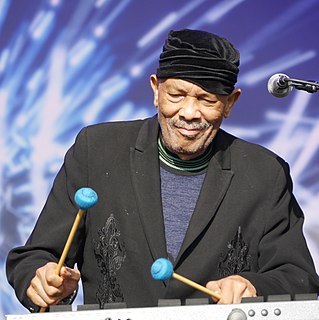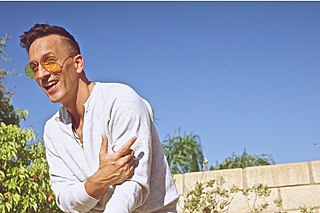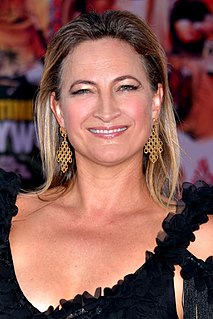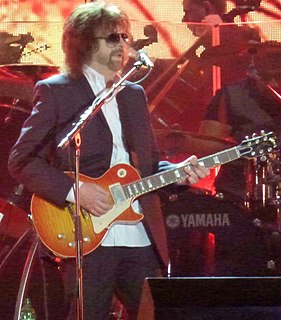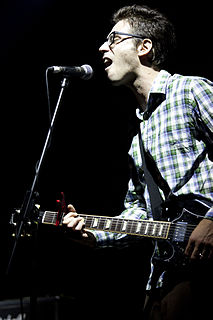A Quote by El-P
The crews that are going to be self-produced are going to make the great albums, as opposed to making these mix-tapes, these compilations - "Me over this guy" It sounds good individually, but the art of the record is something that is lost. It gets to the point where it's just vocalists and producers coming in and piecing things together.
Related Quotes
Toby [Huss] gets shot, or that part when [John] Travolta says this, or the part where Ethan [Hawke] says that cool thing - those details are the things that are interesting to me. So just acknowledging we don't have a lot of money [for Valley of Violence], so we're going to make a Western that's kind of contained, but we're going to make it super charismatic and we're going to make it memorable for what it is as opposed to what we couldn't afford.
But I did mine through a production company. All the music I did, I gave to the production company. Then the production company would give the record company the album. I used to do all my albums like that. It was fantastic. But now, understand, I have never planned to do anything with these other tapes. The one that are released, like the Virgin Ubiquity you have there, I wasn't going to do anything with that music. One day, I was talking to this guy that owns BBE over in England, and I said I've got some tapes and stuff that you might be interested in, and he went berserk.
Guy Picciotto had a really sound point: Live albums basically have bands playing songs that are available on studio records, and what example can you think of where the live album is better? What are the great live albums? I have live albums of bands, but I wouldn't listen to them for the most part. So we thought, instead of spending energy trying to puzzle out how to create a live record, let's just write another studio record.
When I was on 'Xena,' I remember the sound guy and the director at some point being like, you have to make sounds when you fight, and I was like, what are you talking about? You're never going to use it. But they hounded me for a good couple of hours, and basically it was, you need to act, you can't just perform the moves.
In a serious relationship, I will definitely write music about a guy. I'm totally into mix tapes and I'm all about small little things. I'll drop by their door and just leave a gift or come over if they're sick and make them chicken noodle soup and rent a DVD and play board games. I think those little things mean a lot to someone.
It all comes down to what you truly love doing, and what I love doing is overdubbing and making new sounds out of things that are sometimes quite ordinary on their own, but when you put them together, they make something new--or something that sounds new. Just discovering things like that musically is a pleasure.
The live thing is separate from the record for me. I have to figure out a way to make the songs work live. It's always going to be different than it is on a record, because every record I've made, there are people playing parts on there that are not going to be coming on tour with me. As much as still feeling connected to it, it's more like rediscovering.
Having serious consequences to your decision-making process is something you have to be very comfortable with. It's something you learn and you practise over time, so I encourage people to find some way to challenge themselves. The other thing I share with people, which I've learned over time, is self-confidence. You have to get very comfortable with saying, "Well, every day, I'm just going to give my best. I have skill sets I've learned, I'm going to employ them, and my best is going to be good enough".
Record stores are the hippest libraries. In these tired ole days of homogenized entertainment, where so much of the art of our society is culminated, dumbed-down and mass produced, there is a shining jewel in the rise of the indy record stores. Going to a record shop for me is like a little treasure hunt no one can take you on but yourself. It's fun to look around and see the other shoppers too...totally entrenched in their own adventure, anticipating the reward of heart wrenching, soul filling, joy making music that might just be a bin or a flip away.


